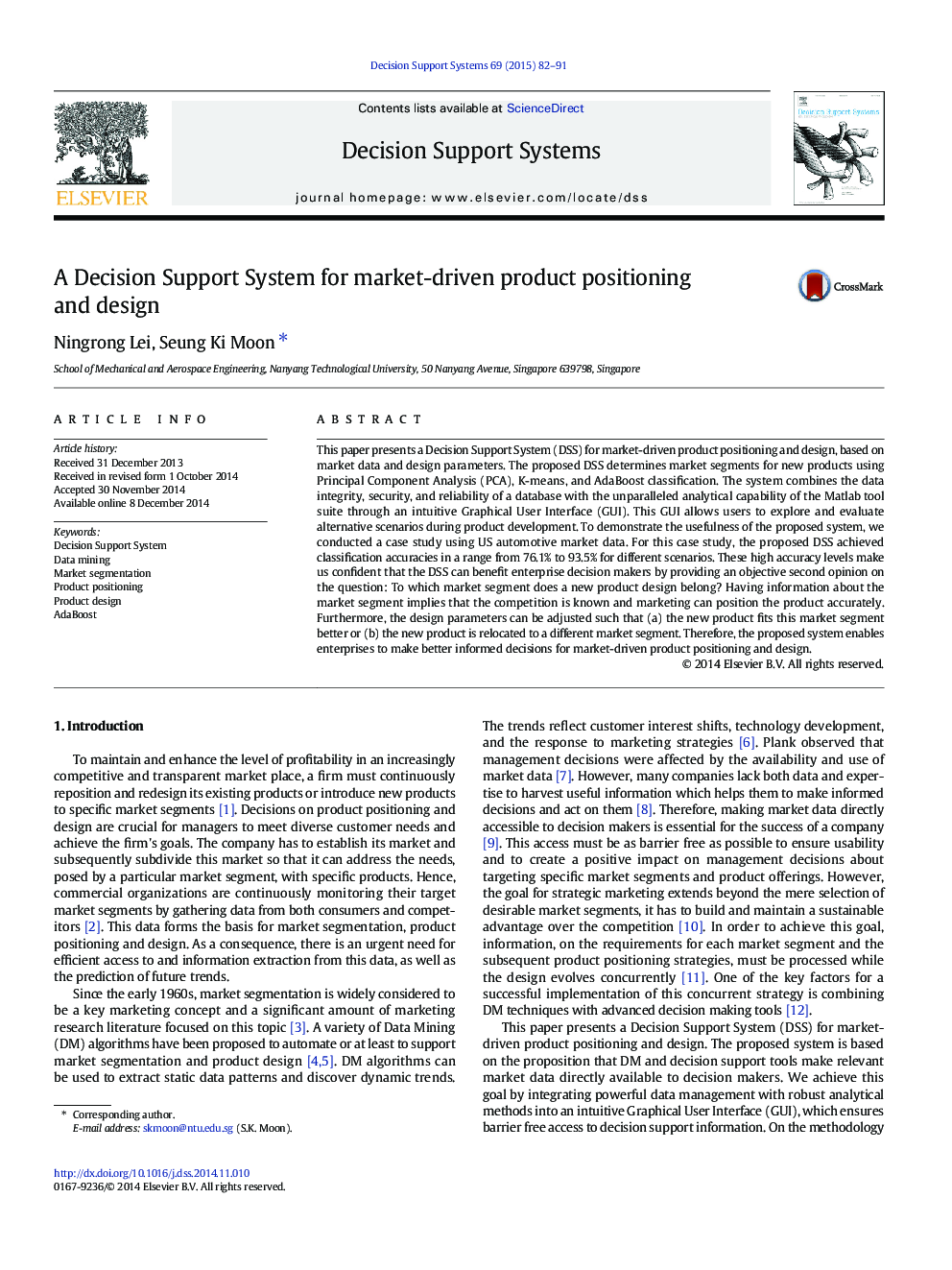| کد مقاله | کد نشریه | سال انتشار | مقاله انگلیسی | نسخه تمام متن |
|---|---|---|---|---|
| 553100 | 1451075 | 2015 | 10 صفحه PDF | دانلود رایگان |
کلمات کلیدی
1- مقدمه
2- بازبینی تحقیقات پیشین
3- مواد و روش ها
3- 1 آماده سازی داده ها
3-2 پشنیبانی از تصمیم گیری با کاوشگر DSSDB
3- 2 – 1 تحلیل مؤلفه اصلی (PCA)
3- 2 – 2 خوشه بندی میانگین های K و معتبرسازی سایه ای
3- 2- 3 طبقه بندی کننده AdaBoost
3- 2 – 4 معتبرسازی متقاطع ده لایه
3 – 2 – 5 پشتیبانی از تصمیم گیری
4 – مطالعه موردی
4- 1 داده های مورد کاربردی
4 – 2 آزمایش مورد کاربردی
4- 2 – 1 سناریوی 1 : بخش بندی بازار
4 – 2 – 2 سناریو 2 : تعیین جایگاه محصول
4 – 2 – 3 سناریوی 3 : تحلیل «شرطی»
5 – بحث
6 – نتیجه گیری
• We propose a Decision Support System that automates market segmentation and suggests a market segment for a new product.
• Provide decision support for product positioning and design in the early design stage of product development.
• Allow “what if” analyses in order to evaluate market segments for different products (b) manipulate properties of a new product to examine its market position.
• Robust interpretation and validation of the clustering and classification results.
• High market segment prediction accuracy using real world market data.
This paper presents a Decision Support System (DSS) for market-driven product positioning and design, based on market data and design parameters. The proposed DSS determines market segments for new products using Principal Component Analysis (PCA), K-means, and AdaBoost classification. The system combines the data integrity, security, and reliability of a database with the unparalleled analytical capability of the Matlab tool suite through an intuitive Graphical User Interface (GUI). This GUI allows users to explore and evaluate alternative scenarios during product development. To demonstrate the usefulness of the proposed system, we conducted a case study using US automotive market data. For this case study, the proposed DSS achieved classification accuracies in a range from 76.1% to 93.5% for different scenarios. These high accuracy levels make us confident that the DSS can benefit enterprise decision makers by providing an objective second opinion on the question: To which market segment does a new product design belong? Having information about the market segment implies that the competition is known and marketing can position the product accurately. Furthermore, the design parameters can be adjusted such that (a) the new product fits this market segment better or (b) the new product is relocated to a different market segment. Therefore, the proposed system enables enterprises to make better informed decisions for market-driven product positioning and design.
Journal: Decision Support Systems - Volume 69, January 2015, Pages 82–91
